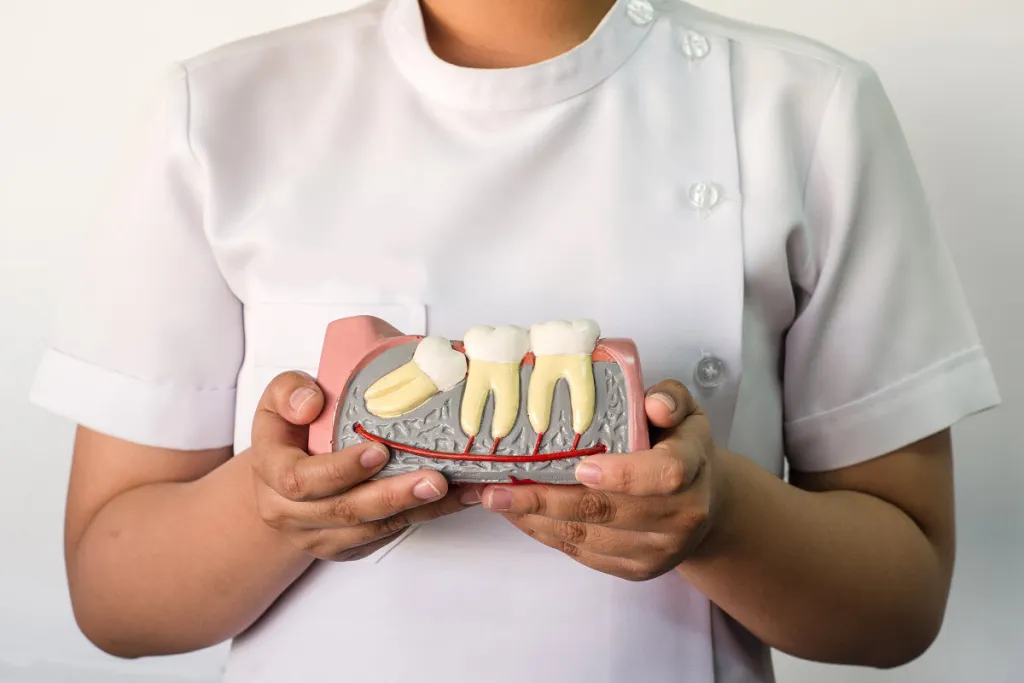
What Happens When Wisdom Teeth Are Impacted?
Introduction:
Wisdom teeth, the final set of adult teeth, typically emerge between ages 17 and 25. However, when hindered by overcrowding, these third molars may become impacted, leading to various dental complications. Explore the ramifications and treatment options for impacted wisdom teeth.
Unveiling the Implications:
The Enigma of Impaction:
- Impacted wisdom teeth occur when there’s insufficient space for normal eruption, resulting in partial or full obstruction. This phenomenon often leads to discomfort, damage to adjacent teeth, and heightened oral health risks.
Identifying Symptoms:
- While impacted wisdom teeth may not always manifest overt symptoms, certain signs warrant attention. These include localized pain, gum inflammation, jaw swelling, headaches, and even persistent bad breath or taste alterations.
The Anatomy of Impaction:
- Impaction manifests in various forms, including distal, mesial, horizontal, and vertical impaction, each dictating the tooth’s orientation within the jawbone. These variations influence treatment approaches and potential complications.
Impacts on Oral Health:
- Impacted wisdom teeth pose multifaceted risks, from dental misalignment and gum disease to cyst formation and decay. The pressure exerted on neighboring teeth can induce crowding, while partial eruption increases susceptibility to infections and oral inflammations.
Navigating Treatment:
Extraction:
- Dental professionals typically recommend extracting impacted wisdom teeth to alleviate discomfort and prevent further complications. Extraction procedures, performed under local or general anesthesia, involve careful removal of the affected tooth, followed by post-operative care to facilitate healing.
Recovery and Aftercare:
- Following extraction, patients receive instructions for pain management and wound care to promote optimal recovery. While most individuals resume normal activities within days, complete healing may require up to two weeks, necessitating adherence to post-operative guidelines.
Final Reflections:
Addressing impacted wisdom teeth promptly is essential to mitigate potential oral health hazards. If you experience symptoms indicative of impaction, consulting your dentist for evaluation and treatment recommendations is imperative, ensuring timely intervention and sustained oral well-being.
